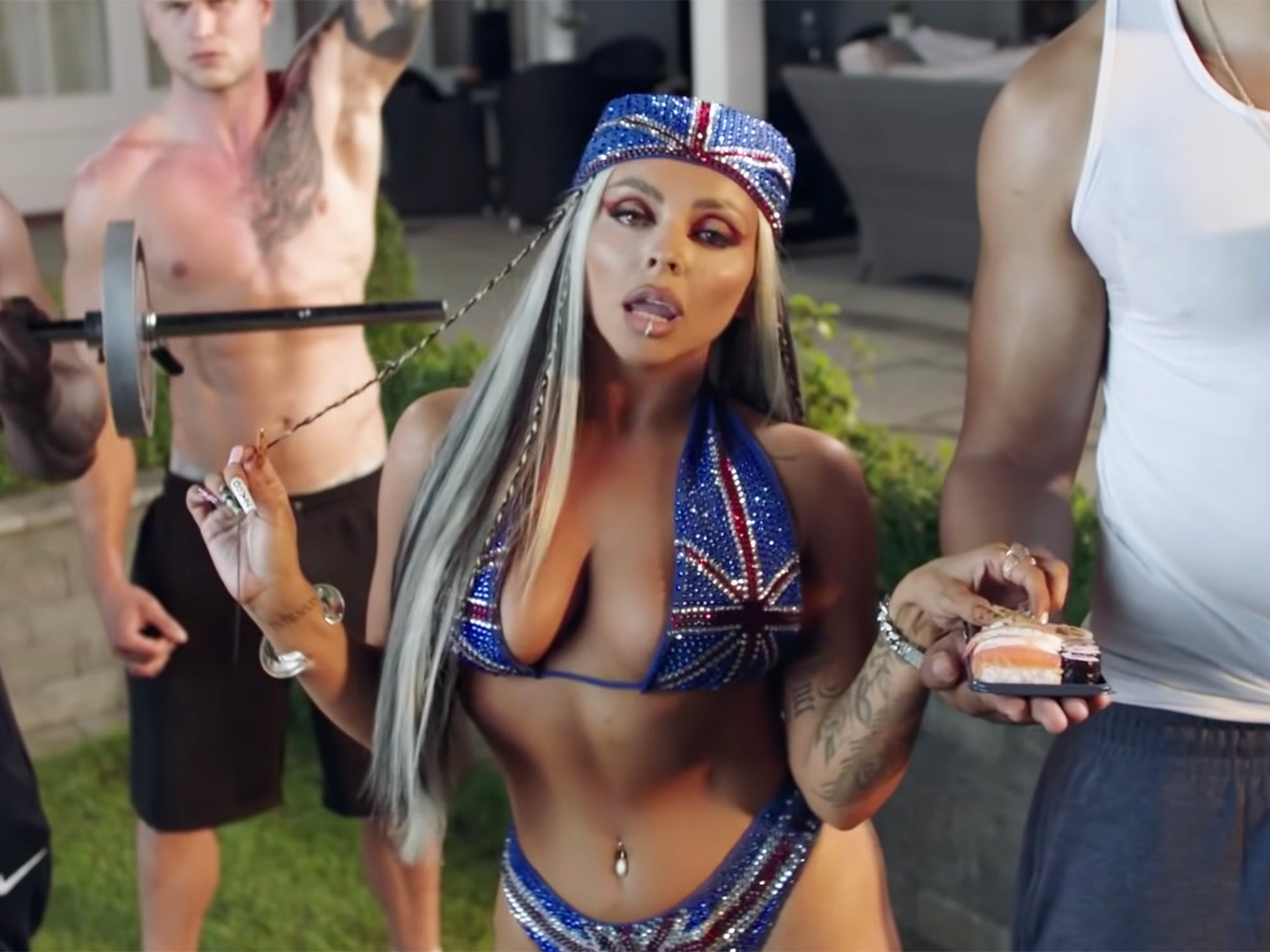Black culture is not something to be picked up, used and discarded – perhaps someone could tell Jesy Nelson
I understand money is king, especially in the entertainment industry. But to make money at the expense of an entire community’s identity, particularly in this day and age, will not fly

Your support helps us to tell the story
From reproductive rights to climate change to Big Tech, The Independent is on the ground when the story is developing. Whether it's investigating the financials of Elon Musk's pro-Trump PAC or producing our latest documentary, 'The A Word', which shines a light on the American women fighting for reproductive rights, we know how important it is to parse out the facts from the messaging.
At such a critical moment in US history, we need reporters on the ground. Your donation allows us to keep sending journalists to speak to both sides of the story.
The Independent is trusted by Americans across the entire political spectrum. And unlike many other quality news outlets, we choose not to lock Americans out of our reporting and analysis with paywalls. We believe quality journalism should be available to everyone, paid for by those who can afford it.
Your support makes all the difference.I’m an R&B fan. Truth be told, I’m not fussed who makes it. Black, white, tall, short. As long as there’s a rhythmic, booming bass with a sweet melody, you’ll find me dancing along. But what irks me is the racially ambiguous marketing of some non-black R&B stars, designed to appeal to a mass market.
Which leads me, inevitably, to Jesy Nelson. The former Little Mix member released her debut solo single, “Boyz”, and accompanying music video recently and was quickly accused of “blackfishing”, a term used to describe white individuals who mould their appearance to look black or mixed race.
The term was not widely used when Pink was making R&B music but people certainly accused her of it. Her music videos were certainly “urban” but there’s no denying Pink was, and always has been, a white woman. Jesy’s look in her new video, by contrast, provides a textbook definition of blackfishing. It’s undeniable: she looks mixed race. Since the days of The X Factor she has developed caramel skin and coily hair normally only seen with black women. But this is more than just a fake tan and a quirky hairdo. The music video is a poisonous cocktail of hypersexualisation, thug-looking dancers, attitude-giving glances at the camera and more. It’s these awful and dated stereotypes that end up being painted on ordinary black people outside the world of music videos.
I understand money is king, especially in the entertainment industry. But to make money at the expense of an entire community’s identity, particularly in this day and age, will not fly. When we know better, those in the public eye should do better.

The success of pop stars relies heavily on marketing and branding, so I find it hard to believe that even one strand of hair, seemingly out of place, on a pop star’s head would not have some sort of meaning behind it. Their images are carefully crafted. Jesy Nelson is no different. This is a look put together by her and her team in a bid to reach the widest audience possible in order to sell her music to millions of people.
I don’t blame Jesy for wanting to make money and be successful but if you choose to use black culture and creativity to do it, you cannot be absolved of the socio-political nuances that surround it. Being black is political. Even on a normal day. Herein lies Jesy’s problem. She thought only about what might look “cool” but never seemed to consider the temperature of the world she’s releasing her music into. Now more than ever, there is a heightened sense of awareness of black exploitation in all arenas of life. Instances that may have been ignored just two years ago are now not only being looked at with a magnifying glass, they are actively being discussed and beginning to be dealt with.
In this case, it’s the privilege of a non-black artist to look black while making black music on an international stage. There’s a sad irony in this because many black musicians have been either pushed aside or prevented from creating black music and embracing a look that is natural to them because they “won’t sell records” or they’ll “alienate their audience”. Jesy has used that privilege in a space and in a way that real women of colour could only dream of. I have a feeling that Alexandra Burke being told to bleach her skin isn’t exactly how she expected her career would go.
It’s extraordinary to see some fans of Jesy waking up and realising that after all this time of thinking she’s a woman of colour, actually, she’s not. Whether she intended to look racially ambiguous or not, the fact is that it’s a tool she has either knowingly or unwittingly used to gather fans across the globe.
I will admit that part of me feels for Jesy. She is yet another young woman who is part of a well-oiled entertainment industry machine that has interest only in making money – regardless of the cultural implications. I felt awful after watching Jesy’s documentary on her being bullied and how it affected her mental health. My heart honestly broke for her. However, in this situation and as someone in the public eye, I think there needs to be a separation between trolls spewing their hate and holding someone accountable for their actions.
It’s videos like the one for “Boyz” that push black artists and their creativity into the wilderness. That’s why it surprised me to see Nicki Minaj, a black female artist who featured in the video, publicly back Jesy’s look. Also, in the same breath, Nicki took the opportunity to drag down another black woman and Jesy’s former bandmate, Leigh-Anne Pinnock. Nicki accused her of jealousy after she called out Jesy for blackfishing. Leigh-Anne even did a documentary this year talking about how race has played a massive part of being in a band as big as Little Mix and how it’s affected her. It’s an unbelievable circle of ironies.
You may say it’s just a video, it’s just a popstar, it’s not that serious. But it’s a mirror of what frequently happens in wider society, of what’s been happening for hundreds of years to black people. This is what makes it serious. It perpetuates the ideas that the culture of certain communities can be handed out to others. However, members of said community are not allowed to sit at the table. It’s marginalisation in its purest form.
Two things need to happen here. Jesy should realise the path she’s going down is only going to do more damage to the black community and to its culture, one that she claims to love. Secondly, the industry has to change. It cannot go on exploiting the creativity of black people while simultaneously excluding the fountain from which that creativity stems: black people.
The truth is, there is absolutely nothing stopping any person of any race making black music. The point is you don’t have to blackfish to do it. It’s hugely damaging. It makes me wonder how long she will even have this look for? Black culture is not something to be picked up, used and discarded. Too many tears have fallen and too much blood has been spilt in cultivating and protecting this culture for it to be misused in this way.

Join our commenting forum
Join thought-provoking conversations, follow other Independent readers and see their replies
Comments